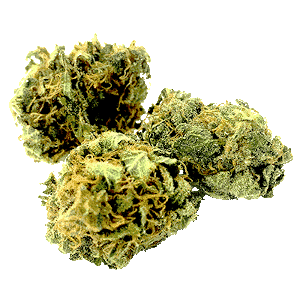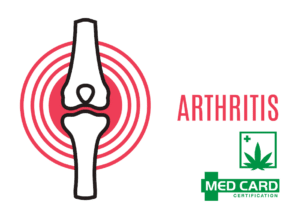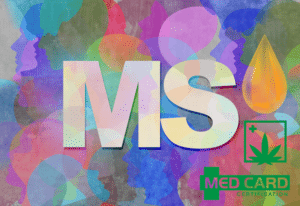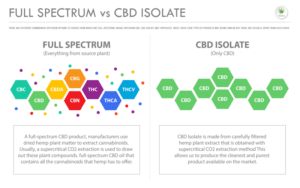
Treating Chronic Fatigue Syndrome with Medical Marijuana
- Chronic fatigue syndrome is a condition characterized by not only extreme tiredness but also chronic pain and inflammation, impared concentration, and much more.
- Compounds found in medical marijuana have been shown to help relieve certain symptoms of chronic fatigue syndrome plus lessen use and side effects of prescription medications.
- A wide range of cannabis strains and cannabis-infused products including non-intoxicating options are available at medical marijuana dispensaries nationwide.
Chronic fatigue syndrome (CFS) is a long-term illness with a wide range of symptoms. The most common symptom is extreme tiredness. CFS is also known as myalgic encephalomyelitis or ME. Is medical marijuana safe and effective for treatment of CFS/ME? Many patients are reporting that marijuana is, indeed, improving their quality of life.
In this post, we’ll look at some of the ways medical marijuana helps treat CFS/ME. We’ll also look at how cannabis affects the human body, and briefly go over some treatment options.
The symptoms of ME/CFS include chronic fatigue, brain fog, chronic pain (myalgia), headaches, depression, sore throat, sensitivity to food and light, extreme malaise, IBS, night chills and sweats, and tender lymph nodes. The condition is often accompanied by inflammation of the brain and spinal cord.
Little is known about the causes of ME/CFS. Up to 91 percent of people affected with CFS are undiagnosed, misdiagnosed, and mistaken for other conditions, such as depression. To obtain a correct diagnosis, patients frequently must consult multiple clinicians over a number of years.
Without knowing the cause of the condition, treatment options are limited. Even after diagnosis, patients struggle to obtain appropriate care and have often been prescribed treatments such as cognitive-behavioral therapy (CBT) and graded exercise therapy (GET) that could worsen their condition.
There are some medications for chronic fatigue syndrome. However, no single medication will alleviate all the symptoms. Moreover, symptoms can change from day to day.
Prescription medications used to treat chronic fatigue disorder can have serious side effects such as nausea, drowsiness, blurred vision, constipation, dry mouth, insomnia, weight gain or increased appetite, and even sexual problems including reduced libido and erectile dysfunction.
Treatment for chronic fatigue syndrome also sometimes includes psychological counseling and physical therapy. And many CFS/ME patients end up turning to alternative treatments such as tai chi, massage, acupuncture, and yoga.
There is growing evidence that marijuana offers a natural, safe, and effective treatment for some patients suffering with chronic fatigue disorder. This has been confirmed via studies of CFS/ME patients who live in states where medical marijuana is approved.
How does medical marijuana help chronic fatigue syndrome patients?
Many CFS/ME patients report improvements in symptoms such as fatigue, muscle and joint pain, emotional imbalance, and depression as well as disturbed sleep (sleeping disorder).
Three of the most common reasons patients use medical marijuana are to reduce chronic pain, relieve depression, and improve sleep. Numerous studies have shown that marijuana is effective at treating all of these common CFS symptoms.
A 2011 study examined the medical effectiveness of cannabis for symptom relief in patients with fibromyalgia, a condition with similar symptoms. The study found that the patients experienced reductions in pain and stiffness as well as improved sleep and perceived overall wellbeing.
Medical marijuana can also be used to ease the side effects of prescription medications. For example, steroids, sedatives, and antidepressants can actually increase fatigue in some patients.
How does medical marijuana help treat chronic fatigue syndrome?
Compounds produced in marijuana called phytocannabinoids have the ability to interact with the human endocannabinoid system or ECS.
The human body produces its own natural cannabinoids called endocannabinoids. Dysregulation of the ECS has been linked to chronic conditions such as fibromyalgia, autism, migraine, and irritable bowel syndrome.
Phytocannabinoids have the ability to mimic the effects of endocannabinoids to some extent. Supplementation with phytocannabinoids has been shown to bolster certain functions of the ECS. They also act as antioxidants.
The most common phytocannabinoids are delta-9 tetrahydrocannabinol (THC) and cannabidiol (CBD). There are also several lesser-known cannabinoids such as CBG, CBN, and CBC.
All of these compounds are known to have both auto-immune and anti-inflammatory effects. Autoimmune conditions such as multiple sclerosis, rheumatoid arthritis, colitis, and cancers all have both inflammation and auto-immune components. Like these conditions, ME/CFS is thought to involve both autoimmune and inflammatory responses.
Proteins called cytokines help to coordinate immune responses to infection. They are responsible for both initiating and turning off the immune response. Chronically-elevated cytokine levels may play a role in many of the symptoms experienced in ME/CFS. Both THC and CBD have been shown to affect the immune system by increasing immunosuppressive cytokines and decreasing T-cell activating cytokines.
CFS might also have infectious and environmental components. Cannabinoids have been shown to offer antioxidant, anti-microbial, antibiotic, antiviral, and antifungal properties. However, research also shows that THC inhibits certain cytokines that play an important role in fighting viral infections.
Is medical marijuana safe for the treatment of chronic fatigue syndrome?
Medical marijuana and cannabis-infused medicines are well-tolerated by humans. This is because phytocannabinoids are highly similar to our own natural endocannabinoids. As such, cannabinoids are completely non-toxic and non-addictive.
One danger that exists, however, is the tendency to over-medicate with marijuana. The most common effects of the overuse of THC are lethargy and intoxication.
However, low levels of cannabinoids can have dramatic effects. Microdosing with THC and/or CBD is oftentimes the best option for CFS/ME patients. Micro doses of THC (less than 5 milligrams) can be quite effective without causing intoxication.
Learn more about microdosing with medical marijuana.
How medical marijuana is used to treat chronic fatigue syndrome?
A wide array of options for treating chronic fatigue syndrome are available at medical marijuana dispensaries nationwide. Many states offer dried marijuana for smoking, vaping, or cooking. Most offer cannabis concentrates, oils, tinctures, capsules, edibles, topicals, patches, inhalers, and suppositories.
There exists a vast spectrum of cannabis strains available in dried flower form as well as products such as hash and kief. Each strain produces a particular ratio of cannabinoids. Some are high in THC and low in CBD. Others contain higher amounts of CBD.
Each strain also produces different formulas of terpenes. Terpenes are the variety of essential oils that give marijuana strains their distinctive aromas and effects. The combined effect of cannabinoids and terpenes is referred to as the entourage effect.
Full-spectrum cannabis concentrates such as wax, shatter, rosin, and budder are also available. All of these products can be smoked or vaporized offering a fast onset time and potent effects. This makes them a good option for treating pain or helping patients sleep.
Smoking and vaping, however, are not recommended for patients with circulatory or pulmonary conditions. For these patients, inhalers containing purified cannabinoids might be an option.
Although they offer a slower onset time and less potent effects, oral delivery methods such as tinctures, oils, capsules, and edibles offer long-lasting effects. Daily periodic oral dosing is more suitable for treating systemic inflammation, autoimmune response, and infections.
Transdermal patches and suppositories also offer systemic effects. And topical solutions such as cannabis-infused creams, ointments, balms, and salves oftentimes provide relief at the site of joint and muscle pain in some patients.
Conclusion
Some CFS/ME patients are successfully using medical marijuana to treat chronic fatigue syndrome and its varied symptoms. It can also help to reduce reliance on prescription medications and lessen their side effects.
Cannabis won’t help all patients. Nor will it treat all of the symptoms of the condition. However, medical marijuana can play an important role in improving the quality of life for many CFS/ME patients.
Chronic fatigue syndrome is a serious condition that should be treated under the care of a knowledgeable medical marijuana doctor. Patients should not be self-medicating.

Sign Up for Medical Cannabis Today!
For potential patients, if you’re ready, we make it easy to connect with a medical marijuana doctor nearby or online. If you are interested in getting certified, please fill out the MMJ patient registration form below and press submit to get started. See if you qualify today!

MedCard Registration Form


Medical Marijuana Links:
Sources And Additional Reading
- Cannabis Use in Patients with Fibromyalgia: Effect on Symptoms Relief and Health-Related Quality of Life
- Clinical Endocannabinoid Deficiency Reconsidered: Current Research Supports the Theory in Migraine, Fibromyalgia, Irritable Bowel, and Other Treatment-Resistant Syndromes
- Cytokine signature associated with disease severity in chronic fatigue syndrome patients
- Cannabis & Chronic Fatigue Syndrome
- Marijuana as Medicine for ME/CFS and/or Fibromyalgia Pt I: The Science Behind Cannabis

















